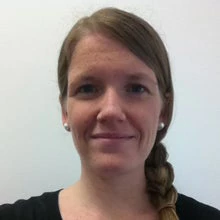“Try explaining to them that a working woman is not less responsible for her home. Try explaining to them that nothing is done if you do not step in, that you have to see to everything, do everything all over again: cleaning up, cooking, ironing. There are the children to be washed, the husband to be looked after. The working woman has a dual task, of which both halves, equally arduous, must be reconciled.”
In her award-winning novel, So Long A Letter, Mariama Bâ poignantly described what it meant to be a Senegalese woman in the 1970s. Today, fifty years later, many women in Senegal, as well as in other countries in the West African Economic and Monetary Union (WAEMU)[i], continue encountering similar challenges. The data collected by the Harmonized Survey on Households Living Conditions (Enquête sur les Conditions de Vie sur les Ménages, EHCVM) 2021/22, conducted in the eight WAEMU countries, reflect this reality.[ii]
In October 2023, the World Bank Strengthening Gender Statistics (SGS) project, a joint initiative between its Gender Group, its Poverty and Equity Global Practice, and its Development Data Group’s Living Standards Measurement Study (LSMS) partnered with the WAEMU Commission to conduct a capacity-building workshop on gender statistics in Lomé, Togo. The workshop gathered participants from seven WAEMU countries (Benin, Burkina Faso, Côte d'Ivoire, Guinea Bissau, Mali, Senegal, and Togo), as well as two non-WAEMU countries (Chad and Republique of Congo), and produced 31 gender indicators. Those new gender data have become the basis for the first WAEMU Regional Gender Factbook 2024, offering insights into gender disparities across demographics, education, labor force participation, employment, renumeration, entrepreneurship, asset ownership, decision-making, and child labor.
In this blog, we focus on four takeaways from this recently published first WAEMU regional gender factbook related to women’s labor force participation, work, and employment.
[i] The West African Economic and Monetary Union (WAEMU) is made up of eight countries: Benin, Burkina Faso, Côte d'Ivoire, Guinea-Bissau, Mali, Niger, Senegal, and Togo.
[ii] EHCVM is a harmonized survey conducted in the eight WAEMU member states (Benin, Burkina Faso, Côte d'Ivoire, Guinea-Bissau, Mali, Niger, Senegal, and Togo), under financial and technical assistance of the World Bank and the WAEMU Commission.
1. Women spend almost five times as many hours on unpaid domestic work as men
The way women and men spend their time, particularly the balance between paid and unpaid work, offers valuable insights for economic development. The EHCVM 2021/22 data show that women aged 15 and over across the WAEMU countries spend almost five times as many hours on unpaid domestic work as men.
On average, women dedicate two hours of their day to unpaid domestic work, while for men these tasks take 30 minutes – as illustrated in Figure 1. The gender gap is particularly large in Burkina Faso, Niger, and Mali, where women work approximately 2 hours more than men. Most of women’s unpaid work time is spent on domestic chores, which include shopping at the market, cooking, washing up, doing laundry, fetching water, and fetching wood (2 hours). This is followed by caregiving duties, like taking care of children, elderly or sick, and helping children with their homework (0.4 hours). The fact that women allocate a substantial amount of their time to domestic and care work bears negative implications for their ability to enter and remain in the labor force and advance their careers.
2. Almost half of all employed women in WAEMU work part-time, with large variation across countries
Across WAEMU countries, EHCVM 2021/2022 data show that women are less likely than men to participate in the labor force (41 vs. 66 percent, respectively), and not as likely to be employed, (40 vs. 65 percent respectively). In contrast, more women work part-time compared to men.
The EHCVM 2021/2022 data reveal that 45 percent of employed women in the WAEMU countries work part-time, a stark contrast to 22 percent of employed men. This disparity is particularly striking in Niger, where 73 percent of employed women work part-time while 26 percent of men fall in that category. Conversely, countries like Benin and Togo demonstrate that this gap can be narrower – see Figure 2. This variation in part-time work gaps between women and men across WAEMU countries indicates that local policies, social norms, and economic conditions might play a decisive role in shaping women's employment trajectories.
3. Gender wage gap favors men over women, but country variations are large
In the WAEMU region, the gender gap in average hourly earnings[i] among waged employees stands at 15 percentage points, which means that women are paid only 85 percent of what men earn. In other words: for every 1,000 CFA francs earned by men, women in the WAEMU region only get 853 CFA francs.
This gap varies significantly across countries, with some experiencing wider disparities. Benin and Togo have the largest gender wage gaps, at 34 and 30 percentage point, respectively. On the other end of the spectrum, Côte d'Ivoire has the smallest wage gap in the region with 7 percentage points. Niger is the only country that goes against the regional trend with an 11-percentage point hourly pay gap favorable to women – Figure 3.
[i] Please note that the gender wage gap does not control for factors that potentially affect wage including qualification, experience, employment sector , etc.
4. Women are underrepresented in managerial roles
Across the WAEMU countries, for every 10 management roles, only approximately 2 are performed by women – Figure 4.
The disparity extends beyond geographical boundaries and is visible in all sectors of employment. Women are more likely to hold managerial positions in the private sector (where women occupy 24 percent of these positions) compared to the public sector (18 percent) – Figure 5. There are, however, some positive scenarios emerging from the data: the proportion of women in managerial positions in Guinea-Bissau and Burkina Faso surpasses the regional average, at 32 percent and 26 percent respectively.
Looking ahead
The findings above are included in the first WAEMU regional gender factbook, which compiles harmonized regional statistics capturing everyday challenges in women’s lives, providing benchmarks for regional comparison and highlighting pathways for gender-targeted interventions. As part of its ongoing effort to strengthen gender data's quality and availability, the SGS project will continue its partnership with the WAEMU Commission through the ongoing regional statistical capacity strengthening project supported by the World Bank and technical assistance for the upcoming third round of the EHCVM survey.
Ultimately, by harnessing the power of gender data, countries can craft policies that truly uplift and transform the lives of women and girls, paving the way for a more equitable and prosperous future for all.
The SGS team extends their gratitude to Prospere R. Backiny-Yetna, Abdoullahi Beidou and Aissatou Ouedraogo for their valuable inputs and support in the development of the WAEMU regional gender factbook.






Join the Conversation